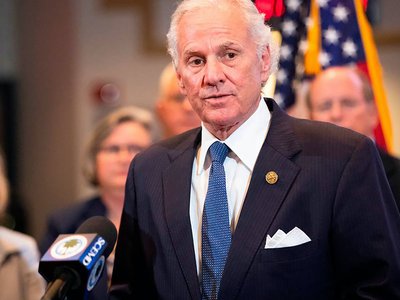Tax breaks for lower income seniors, families with dependents, benefactors of capital gains and inheritance proceeds are all in Gov. Charlie Baker’s proposed budget for the upcoming fiscal year.
Baker, who went before the Massachussetts legislature’s Joint Committee on Revenue for a hearing on Feb. 22, discussed the proposed tax cuts and said they are the outgrowth of continued, sustained budgetary surpluses.
The governor’s proposals could result in $700 million in savings to Massachusetts residents, based on the information he shared with the committee. The efforts are encapsulated in two pieces of legislation: House Bills 4361 and 4362.
While the federal government has pumped COVID-19 stimulus revenue into state budgets across the country the past two years, Baker said other internal efforts – including the sustained growth of the commonwealth stabilization fund – make the tax cuts possible.
The current balance of the stabilization fund hovers around $4.6 billion, and Baker said it is expected to grow by an additional $2 billion by the end of fiscal year 2023.
“All of this work, which we have done alongside our partners in the legislature, makes the commonwealth well prepared to deal with future crises,” Baker said.
The tax cuts are designed to impact a range of residents, Baker said, and come on the heels of the two years of economic instability from the pandemic, alongside continued uncertainties and challenges from inflation and supply chain disruptions.
“We believe it’s time to give Massachusetts families back some of the tax revenue that they created through their hard work,” Baker said. “We’re proud to introduce these tax cuts, which will lessen their tax burden, allowing them to keep more money in their pockets to put toward their necessities.”
Several of Baker’s specific proposals went under the microscope at the recent committee meeting – most notably, his call to reduce the state’s short-term capital gains tax from its current rate of 12% to the rate of all other income sources, which is 5%.
Baker also is proposing upping the monetary threshold for an estate or inheritance tax to kick in, from the current rate of $1 million to $2 million.
During testimony, lawmakers did hear some push back on the capital gains and estate and inheritance tax plans.
Phineas Baxandall, senior analyst and advocacy director at the Massachusetts Budget and Policy Center, cautioned lawmakers not to make tax cuts that are too deep and instead focus on targeting them to the population with the greatest need.
“We caution against deep, permanent cuts to state revenue in what are likely temporary surpluses,” Baxandall said. “What we find most troubling, however, about the bill before us is that the majority of the revenue loss, and by far the most generous tax breaks, are for those who are the state’s wealthiest residents.”
Other speakers, however, gave a different take, pointing out all of the tax cuts – including the proposed inheritance and estate tax cuts and lower rates on short-term capital gains – are important at a time when the competitive landscape has grown more pronounced at a time when remote work has grown.
“People have more choices,” said Eileen McAnneny, president of the Massachusetts Taxpayers Foundation. “Cost structure absolutely matters.”
Baker shared similar comments in his defense of the provisions for higher income earners.
Speaking to Massachusetts and its competitiveness from a taxation standpoint, Baker said, “I worried about that less before the pandemic. I worry about it more now. I think we stand out in what I would consider a very negative way.”






